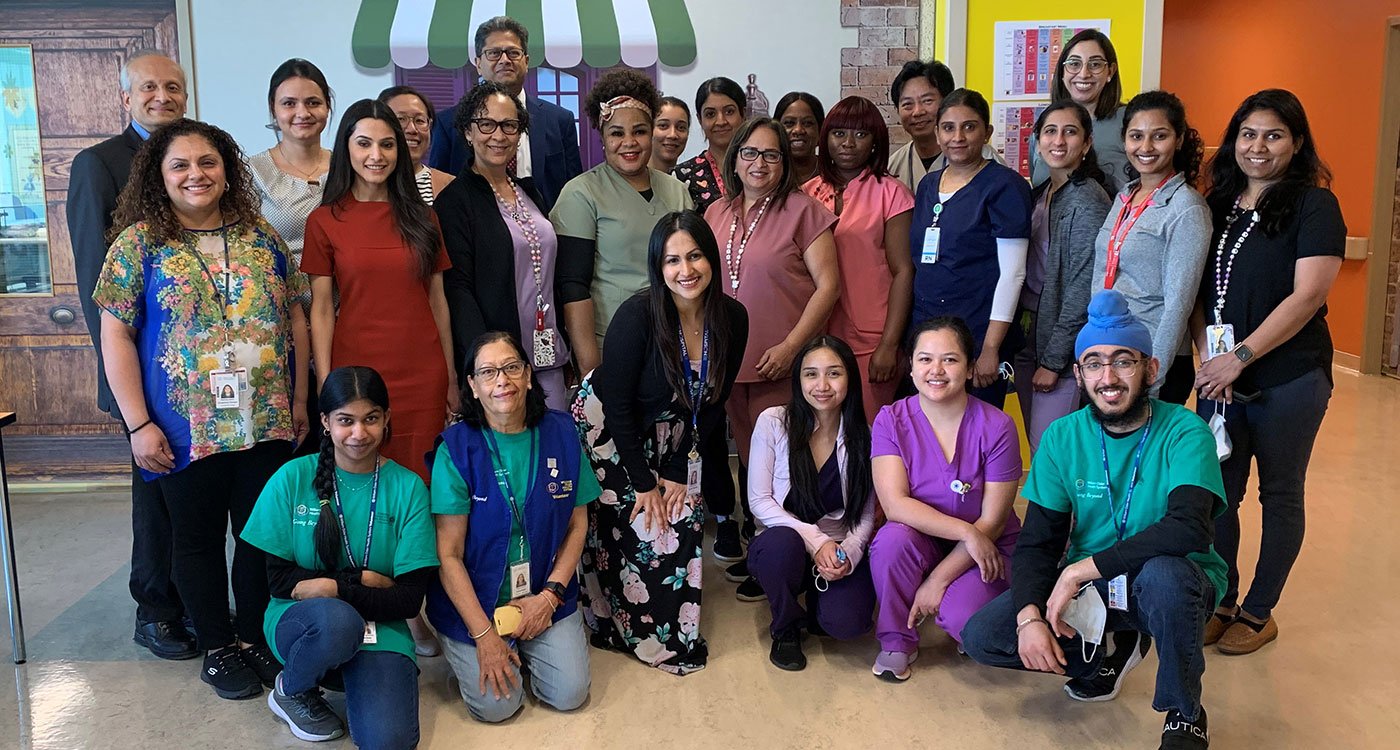
The letter hangs from the recognition board on the Acute Care of the Elderly (ACE) Unit at Brampton Civic Hospital for all to see.
Written by the wife of a former patient on the unit, Nadine’s words are a powerful reminder of the difference Osler’s innovative approach to dementia care is having on the lives of those affected by this disease.
“Ross came to you, broken in mind and spirit. You smiled at him. You cared for all his needs. You tried your very best to make it better because you saw him as a person. You looked for his smile and his beautiful green eyes and spoke to him as a whole human being,” she wrote of her husband who has since passed away.
In February 2023, Osler became the first acute care hospital in the world to implement The Butterfly Model™ in a hospital setting, receiving accreditation with the highest designation, both in 2023 and again last month, from Meaningful Care Matters (MCM), the U.K. organization that developed the model.
At the heart of this transformational shift in model of care is the incredible ACE Unit team, who bring this emotion-based, person-centered approach to life for patients and their families on the unit every day. In recognition of this work, the team received the inaugural Innovation Values Award, which is given to a person or team who embraces challenge in order to improve and pursues new ideas and better ways of working.
“Our team, comprised of clinicians, physicians, leaders, volunteers, clerical, support staff and learners, regards each interaction as an opportunity to deliver dignified and meaningful care, aligned with the patient’s story and what matters most to them” says Jaspal (Pauly) Brar, Clinical Services Manager for Seniors Health.
“We look at ways to individualize a person’s care, to branch away from a cookie cutter approach,” explains Nina Rai, the ACE Unit’s Assistant Manager. “We get to know the patient and try to figure out ‘Who is this individual?’” Then, armed with this knowledge, the team taps into their creative side – another hallmark of innovation – to find personalized ways to support their patients. In one instance, to help a patient feel safer they added a colourful basket to their walker so the patient could carry their purse and other important belongings with them.
“We approach patients in a gentle, compassionate way and try to understand what it is they might need. A person living with dementia often can’t communicate the same way as you and I can,” explained Nina.
The impact of this approach, which is supported by data and the subject of ongoing research, includes an enhanced physical and mental state, and reduced behavioural responses such as agitation, pacing, and yelling, which typically happen when there is an unmet need.
“Is there any doubt in my mind that this is a more intelligent approach to looking after dementia patients? None at all,” says Dr. Sudip Saha, Osler’s Medical Director of Seniors’ Health and Division Head of Geriatric Medicine.
As far as the impact on patients and families – Nadine’s words say it all, and more.
“We all found her letter incredibly touching,” said Nina. “It brought tears to our eyes.”
Nadine writes: “Ross and I had travelled a very difficult road prior to him coming to you, and many times I was angry, even though I know it was not him, but the disease. My confidence in your care of him allowed me to step back and remember who he was before the best parts of him were stolen. It allowed me to feel my love for him again. That is a gift I will always cherish and be grateful to you for.”

